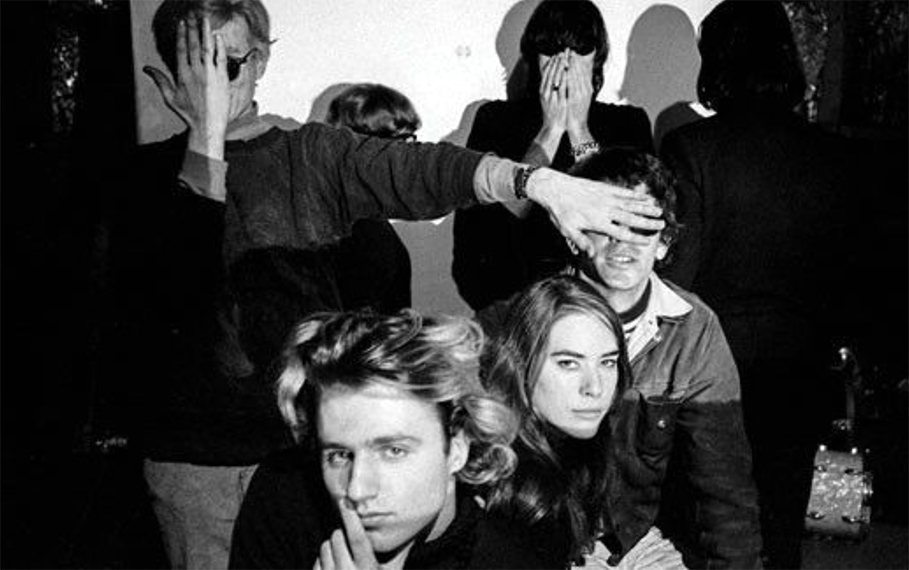Lou Reed on Andy Warhol
beautiful minds

“We were signed because of Andy and he took all the flak by keeping people away from us, because they thought he was producing it.
We said, ‘He’s the producer’, and he just sat there.
We just did what we do, and he would say, ‘Oh, that was great.’ ‘Oh, you should leave it that way.’ Oh, no, that’s wonderful.’
Andy was doing commercial art, then he was doing his other art. He supported the show [the Exploding Plastic Inevitable] with his commercial art. We didn’t have inheritances … we were broke. Andy would do a TV Guide cover or something.
I had a [day] job as a songwriter. I mean, a real hack job. They’d come in and give us a subject, and we’d write. Which I still kind of like to this day. I really love it if someone comes in and says they want a song, they give me a subject. And it’s even better if they tell me what kind of attitude they want. I can divorce myself from it completely.
Andy used to say he really liked it when people corrected his commercial art because he had no feelings about it one way or the other. He didn’t feel anything, and since they did, they must be right.
I studied Mr. Warhol. Any dot that I can use from him, I do. How many times do you get to be around geniuses?
All I did was sit there [at the Factory] and observe these incredibly talented and creative people who were continually making art and it was impossible not to be affected by that.
You look at Andy, somebody who created himself, you know, there he was, a balding commercial artist who took himself off to God-knows-where and he re-invented himself as this guy in a leather jacket and a wig.
I asked him about the wig because I thought it made him look older and he said, ‘Well, that’s fine because when I do get older it’ll be perfect.’
He said, [once] ‘Why don’t you write a song called Vicious?’ And I said, ‘Well, Andy, what kind of vicious?’ ‘Oh, you know, vicious like I hit you with a flower.” And I wrote it down, literally. I kept a notebook in those days. I used it for poetry, things people said. Just like in Last Great American Whale, (New York 1989 Sire Records)
“Stick a fork in their ass, and turn them over, they’re done.” I first heard it in the Midwest; I heard John Mellencamp say it. I’d never heard the expression before … I wrote that one down and changed it a little.
I was doing that around the Factory. I went back and wrote a song, Vicious/You hit me with a flower/You do it every hour/Oh baby you’re so vicious. Then people would come up and say, ‘What do you mean by that?’ I didn’t want to say, ‘Well, ask Andy.’
Or he said, ‘Oh, you should write a song, so-and-so is such a femme fatale. Write a song for her. Go write a song called Femme Fatale. No other reason than that. Or Sister Ray, when we were making the second record, he said, ‘Now you gotta make sure that you do the ‘sucking on my ding-dong’ song.’ ‘Okay, Andy.’ He was a lot of fun, he really was.
He was this catalyst, always putting jarring elements together. Which was something I wasn’t always so happy about. So when he put Nico in, we said, ‘Hmmm.’
Andy said, ‘Oh, you’ve gotta have a chanteuse.’ I said, ‘Oh, Andy, give us a break.’ There we are, doing six sets a night at this terrible tourist trap in the Village.
While I was at the Factory, Gerard Malanga [a Warhol associate and Velvets biographer] submitted one of my poems to a little magazine. I was getting published in these little magazines. Eugene McCarthy gave me the award, something like ‘one of the five best new poets in a small literary magazine.’ I was actually mad at Gerard for submitting it, because I hated the poem. I didn’t care if someone else thought it was good. I knew it was terrible. I thought my song lyric was way better than that particular poem.
In 1967 Andy sat down and had a talk with me. ‘You gotta decide what you want to do. Do you want to keep just playing museums from now on and the art festivals? Or do you want to start moving into other areas? Lou, don’t you think you should think about it?’
So I thought about it, and I fired him. Because I thought that was one of the things to do if we were going to move away from that.
He was furious. I’d never seen Andy angry, but I did that day. He was really mad. Called me a rat. That was the worst thing he could think of.
I had to decide what the next move I was going to make was. Did I want to do it myself? Did I want to have a band? Did I just want to do songwriting, not even get onstage? I’m the last person in the world I’d have thought should be on a stage. Some people really like having a spotlight on them. I don’t. What I like is the song and performing it. Doing it for people who like it.
John [Cale] says that [the Velvets] broke up before we’d accomplished what we should have accomplished. I think he’s right in a way. My records are my version of it. John’s records are his version of it.
Adapted from the 1989 Rolling Stone Interview by David Fricke, Lou Reed: The Rolling Stone Interview.
Image attribution: Photo by Nat Finklestein at the Silver Factory sourced from @LouReed [Twitter]
